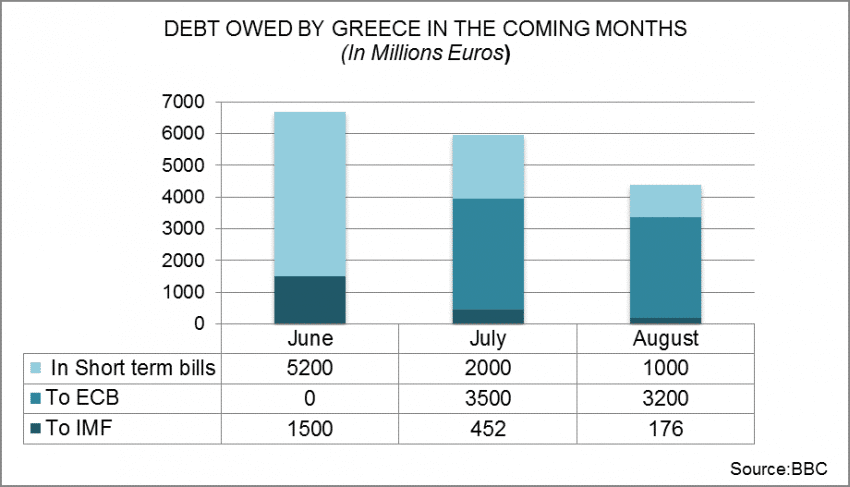When All Options are a Degree of Bad
Churchill reportedly once quipped that one can always count on the Americans to do the right thing after they have exhausted the other possibilities. That description fitting for Europe at the moment.
Greece should not have been allowed to amass such a large debt relative to the size of its economy in the first place. The debt restructurings were too limited and too small to fundamentally change the underlying debt dynamics. The weekend referendum in Greece marks the end of the extend-and-pretend strategy.





